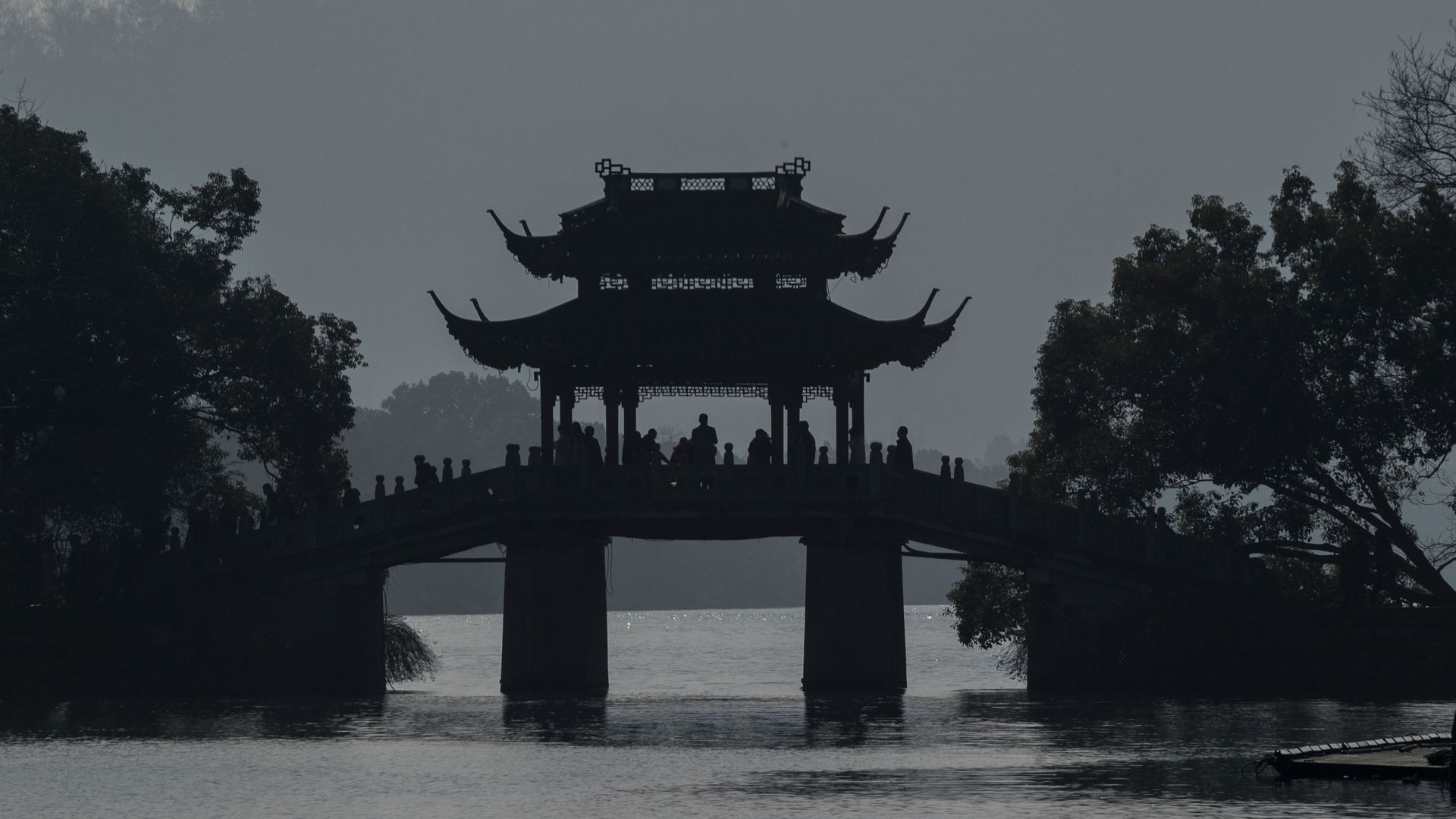Apr 11, 2018 - World
How to recognize a trade war
Add Axios as your preferred source to
see more of our stories on Google.

Calm before the storm. West Lake in Hangzhou, China. Photo: Johannes Eisele / AFP / Getty
Add Axios as your preferred source to
see more of our stories on Google.

Calm before the storm. West Lake in Hangzhou, China. Photo: Johannes Eisele / AFP / Getty